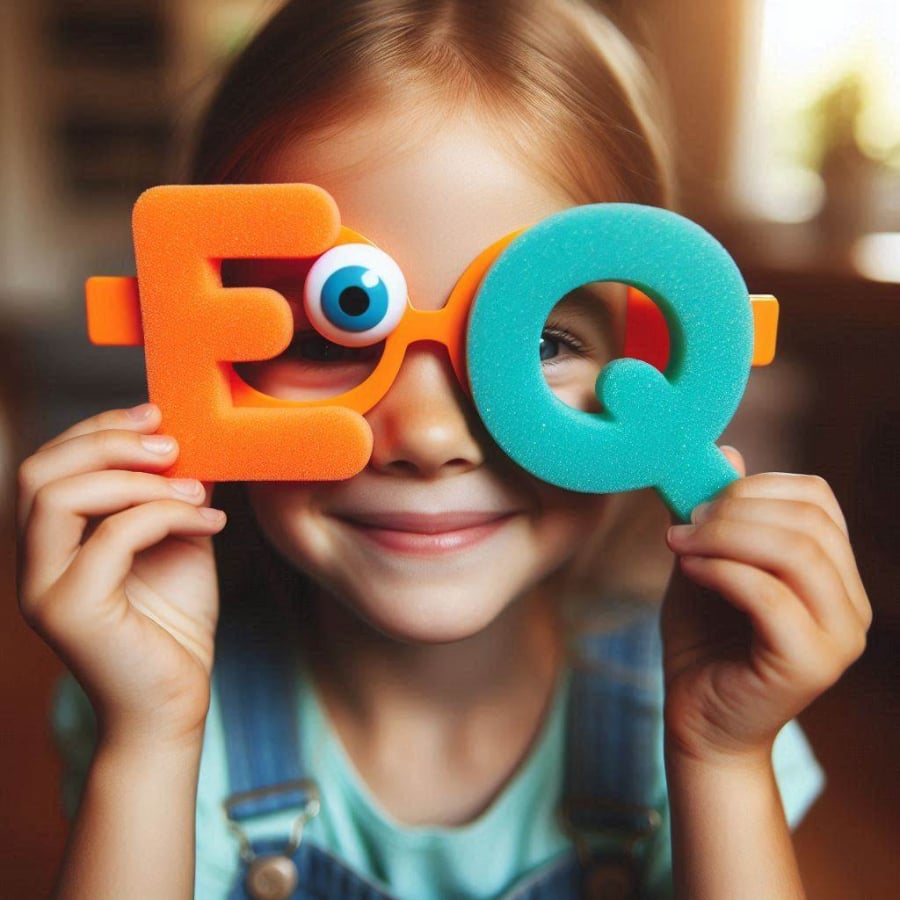Jenny Woo, an educator and emotional intelligence (EQ) researcher, as well as the CEO of Mind Brain Emotion, is a graduate of Harvard University in the United States. She has created numerous educational games and mental health tools to support children and adults in developing essential skills.
As a mother of three, Jenny has extensive hands-on experience in parenting. She is well aware of the challenges of raising a child with high emotional intelligence (EQ).
Here are some of the phrases this expert often uses to help her children develop a high EQ.
“How are you feeling right now?”
When children experience anger, it’s partly because they lack the vocabulary to express their emotions. Thus, it’s the parents’ responsibility to help children gain a clearer understanding of their current emotions by teaching them descriptive emotional vocabulary.
For instance, when children say they are “sad,” they might actually be feeling lonely, ashamed, or misunderstood. Parents can help their children recognize and express their emotions more specifically by teaching them words like “disappointed,” “bored,” or “anxious.”
Additionally, adults can actively incorporate emotional vocabulary into their daily lives to enhance children’s self-awareness. For example, when listening to or singing a song, describe the emotions it evokes. When watching a TV show together, discuss the emotions displayed by the characters and how the child might feel in similar situations. At the end of the day, reflect on the emotions the child experienced throughout the day.
One of the most significant mistakes Jenny Woo points out is that parents often label emotions as “good” or “bad.” Instead of judging an emotion, parents should focus on helping their children understand what that emotion reveals about their values and needs.

One of the biggest mistakes Jenny Woo notes is that parents often label emotions as “good” or “bad”
“It’s okay to not feel happy today”
Parents often feel pressured to remain calm and hide their emotions, but this can set an unrealistic standard for their children. In reality, suppressing emotions can increase anger and sudden outbursts.
Therefore, parents should express their emotions healthily by sharing in a way that children can understand. This doesn’t overwhelm children with the parents’ issues but helps them understand the different emotions adults experience.
For example, when parents are angry about something, instead of hiding or pretending it didn’t happen, be honest with the children about your irritation. When parents openly express their emotions, they demonstrate to their children that experiencing intense emotions is entirely normal.

Parents should express their emotions healthily and in a way that children can understand.
“Your emotions are real and valuable”
Parents need to respect their children’s emotions by empathizing with them. Therefore, don’t dismiss their minor emotions with dismissive phrases like “just bear with it” or “it’s not a big deal.” For a child, emotions are very real and can occupy their entire mind.
Here are some suggestions Jenny Woo proposes to help children and adults deal with challenging situations:
– Take a slow, deep breath through your nose. Imagine you’re gathering up all the uncomfortable feelings. Breathe out and imagine blowing those emotions away like dark clouds. Think: “Breathe in calm, breathe out the storm.”
– When thinking about something you’ve done that makes you feel ashamed, add silly details to turn it into a funny story.
– Humming a tune can soothe an angry mind. Choose a favorite song and sing along. Feel the vibrations spread throughout your body, and let the tension start to ease.
“The First Eight Years: Nurturing Your Child’s Character Development”
“Don’t worry if you can’t build a house yet; focus on building yourself first. Investing in self-improvement will save you a fortune in the long run, and the results will be well worth the wait. The first eight years of a child’s life are crucial, so parents must prioritize accompanying their children during this formative period.”





































